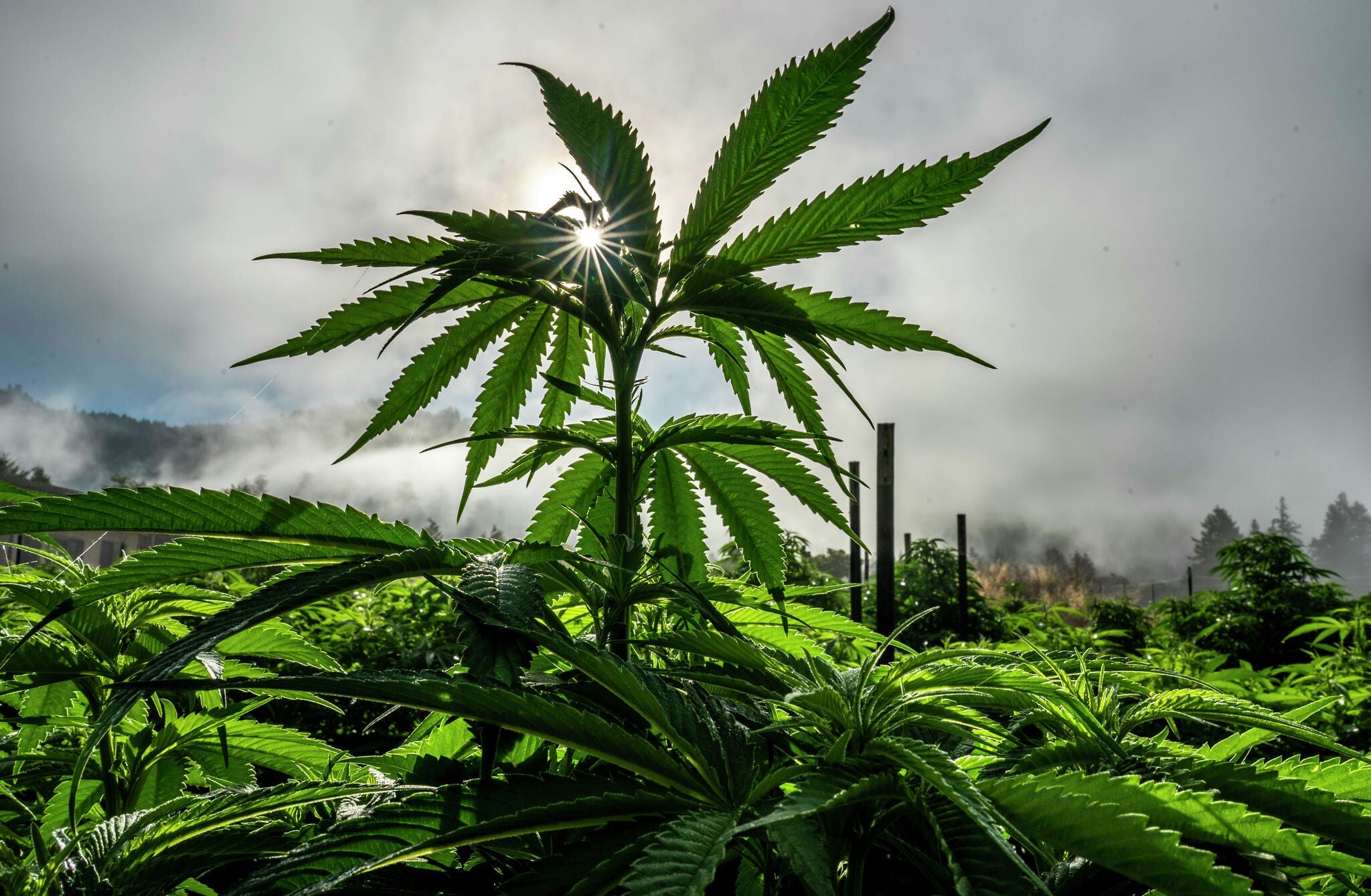
The Constitutional Crossroad: When Cannabis Meets the Second Amendment
The convergence of two politically charged issues—gun rights and marijuana legalization—is setting the stage for a monumental legal and legislative battle in Washington D.C. At the heart of the matter is an anachronistic federal statute, 18 U.S.C. 922(g)(3), which currently prohibits any person deemed an "unlawful user of or addicted to any controlled substance" from possessing a firearm. Given that cannabis remains a Schedule I controlled substance under federal law, this statute effectively imposes a Marijuana Ban on gun ownership for millions of Americans who consume it legally under state law. With the Supreme Court being actively urged to weigh in, a new, surprising chorus is rising in the Senate, with several key Republican lawmakers questioning the long-held Ban Marijuana policy on gun possession.
The political landscape is being redrawn by the swift pace of state-level cannabis reform. As of 2023, 24 states, three U.S. territories, and Washington D.C. have legalized recreational use, while 38 states and four territories permit medical use. This means a significant and growing portion of the American populace, estimated at 52.5 million people who used cannabis in 2021, is now caught in a federal legal trap. A medical marijuana patient in Colorado, a combat veteran using cannabis for PTSD, or a casual recreational user in Alaska—all are considered federal criminals if they own a gun, regardless of their compliance with local laws. This inherent contradiction is what has led to a constitutional reckoning in the federal court system and prompted debate within the GOP.
The Fifth Circuit’s Hammer Blow to the Federal Statute
The pressure on the Supreme Court is not coming from Congress alone, but from a series of stunning rulings in the federal appeals courts. The catalyst for this legal upheaval is the Supreme Court’s 2022 decision in New York State Rifle & Pistol Association, Inc. v. Bruen. The Bruen ruling established a new, stringent test for Second Amendment cases, mandating that any regulation on the right to bear arms must be consistent with the nation's historical tradition of firearm regulation.
The U.S. Court of Appeals for the Fifth Circuit, known for its conservative jurisprudence, has repeatedly applied this new "text, history, and tradition" standard to invalidate the federal drug-user gun ban. In cases like United States v. Daniels and later United States v. Connelly, the Fifth Circuit panels concluded that disarming an individual solely "based on habitual or occasional drug use" has no historical analogue in American tradition. The court specifically rejected the government's argument that the ban is comparable to historical laws disarming the mentally ill, arguing that historical laws only focused on the severely mentally ill or those actively intoxicated. In a profound legal statement, one opinion stressed that the Constitution does not support disarming a sober person based solely on past substance usage. The court ruled that unless the government can prove a cannabis user "poses a risk of future danger," the disarmament is unconstitutional. This emerging circuit split, particularly with the Eighth Circuit upholding the ban in United States v. Veasley, is precisely the kind of conflict the Supreme Court is expected to resolve. The Department of Justice, regardless of the administration in power, has formally asked the high court to uphold the ban, underscoring the severity of this constitutional impasse.
The Republican Rift: A Philosophical Split on Personal Liberty
The legislative front is mirroring the judicial confusion, particularly among Republicans, who have long held the dual identity of being both staunch Second Amendment defenders and firm proponents of the War on Drugs. This duality is fracturing under the weight of state-legal cannabis.
On one side are the staunch conservatives like Senator Ron Johnson (R-WI), who expressed broad concerns over the social effects of legalization, particularly regarding traffic safety. For them, the federal prohibition is a critical public safety measure.
However, a more libertarian and states' rights wing of the GOP is starting to dominate the discourse. Senator Thom Tillis (R-NC) openly questioned the logic of the current law, pointing out the hypocrisy inherent in the federal approach: "Why would I have a problem with that any more than somebody who drinks alcohol?" He argues for a standard of law that treats cannabis users and alcohol consumers equally, especially when a person is sober. Similarly, Senator Dan Sullivan (R-AK), representing a state with both legal marijuana and one of the highest rates of gun ownership, expressed deep skepticism of the federal Marijuana Ban, characterizing it as an infringement on the rights of law-abiding citizens.
This philosophical shift is further evidenced by proposed legislation like the Gun Rights And Marijuana (GRAM) Act, introduced by Republican Representative Brian Mast (R-FL). The GRAM Act aims to amend federal law to specifically exempt adults whose use of marijuana is lawful under state or tribal law from the "unlawful user" prohibition. This legislative push highlights a growing realization within the Republican party that enforcing this outdated federal prohibition puts millions of otherwise nonviolent, law-abiding constituents, including veterans who use medical cannabis for service-related conditions, in legal jeopardy. The debate has transformed from one about drug morality to one about constitutional rights and federal overreach.

The Stakes of Supreme Court Intervention
The Supreme Court’s decision on whether to hear a case like Daniels or one of the several similar petitions will define the future of gun rights for the millions of Americans who use cannabis. The current legal uncertainty, where a person can legally purchase cannabis and then be federally prosecuted for possessing a handgun, is an untenable status quo.
If the Court upholds the Ban Marijuana policy on gun ownership, it would affirm the federal government’s broad power to categorize and disarm groups it deems “unfit,” even when those groups are acting in compliance with state law. Such a ruling would prioritize the federal prohibitionist stance over the text and historical context of the Second Amendment, potentially creating a carve-out that could be used to justify other restrictions on nonviolent citizens.
Conversely, striking down the federal ban for non-impaired, non-violent cannabis users would be a landmark victory for Second Amendment advocates and the states’ rights movement. It would represent a decisive federal recognition of the constitutional rights of state-legal cannabis consumers, further accelerating the end of the federal Marijuana Ban on a functional level. The stakes are immense: the final word on whether a joint and a journal are compatible with the Second Amendment is now likely resting on the high court’s interpretation of historical traditions. The GOP senators now questioning the federal mandate are simply aligning themselves with the fundamental constitutional questions already being raised in courtrooms across the nation.
The legal landscape for cannabis and firearms is in turmoil, creating massive market uncertainty. As the Supreme Court considers the federal Marijuana Ban on gun owners, millions of state-legal consumers face an impossible choice. Your customers demand compliant products and resources that navigate this constitutional chaos. Position your retail brand as the trusted authority. D Squared WorldWide is your premier wholesale partner, offering premium, compliant merchandise and educational tools designed for the modern, constitutionally-aware consumer. We specialize in supply chain stability and complex regulatory management so you can focus on maximizing your sales. Don't be caught flat-footed by the next federal ruling or the growing political momentum to Ban Marijuana users from their rights. Secure your inventory advantage and lead the discussion in your state now. Schedule a call with D Squared WorldWide today to fortify your inventory and brand strategy.
Reference:
1. Mallinson, D., Hannah, A., & Cunningham, G. (2020). The consequences of fickle federal policy: administrative hurdles for state cannabis policies. State and Local Government Review, 52(4), 241-254. https://doi.org/10.1177/0160323x20984540
2. Pomeranz, J., Silver, D., & Lieff, S. (2021). State gun-control, gun-rights, and preemptive firearm-related laws across 50 us states for 2009–2018. American Journal of Public Health, 111(7), 1273-1280. https://doi.org/10.2105/ajph.2021.306287
3. Sato, Y. and Haselswerdt, J. (2022). Protest and state policy agendas: marches and gun policy after parkland. Policy Studies Journal, 50(4), 877-895. https://doi.org/10.1111/psj.12463



